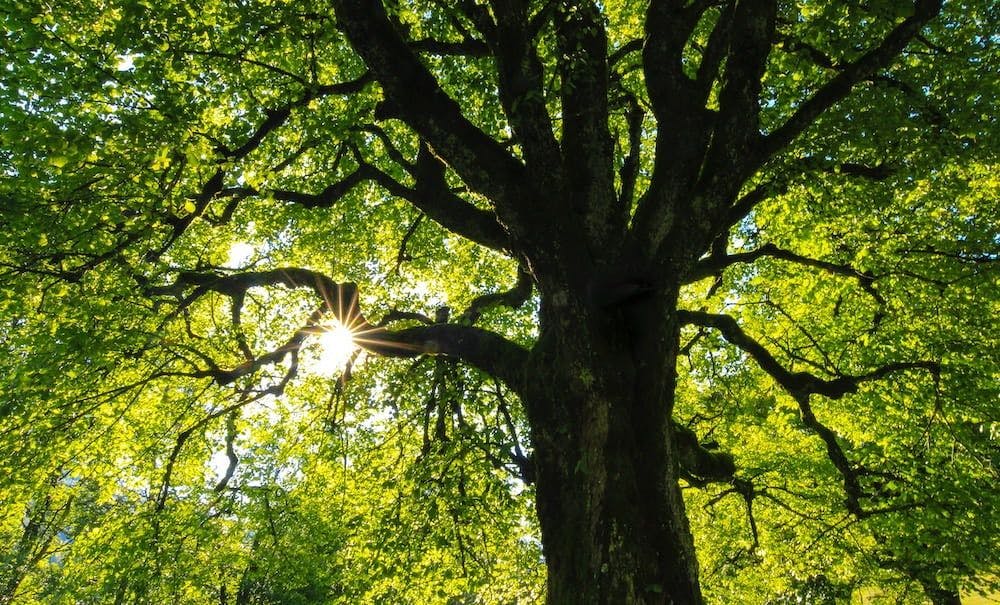
From ditching cling film to choosing charity shops, here are some simple (and perhaps surprising) steps to a more sustainable lifestyle
We all know by now that in order to keep our planet around for longer, we need to take action. Judging by a recent poll we put out on Twitter, many of you are already making changes to your lifestyle with this in mind. We found that 84% of our followers said they’re already taking steps towards sustainability, 8% said they weren’t yet, but plan to, and only 8% said it’s not on their radar.
If sustainability is on your radar, you’re probably already aware of some changes you can make – getting a reusable coffee cup, ditching plastic water bottles for a swanky metal one, and reaching for canvas bags when you go shopping.
These are all amazing steps... but why stop there? Whether it’s in the kitchen, at the office, or in your wardrobe, there are plenty more places where you can make a difference. Here, we’ve broken down some areas where small changes can have a big impact.
Stop clinging to cling film
If we bundled up every piece of cling film used in households across Britain in a year, we’d be able to go around the circumference of the world 30 times over. Being a single-use, tricky to recycle item, cling film is one of the first things to replace.
Consider switching to sealable containers, or reusable options like beeswax wraps. Beeswax coated cotton has been used to preserve food for centuries, and now companies like Bee Green Wraps are creating modern-day versions (which also happen to look hella cute). Described as ‘biodegradable, reusable, and chemical-free’, the company donates 5% of profits to the Marine Conservation Society, to help reduce plastic pollution. Check them out at beegreenwraps.co.uk
Push back against plastic and palm oil
Since the 5p tax on plastic bags was introduced, supermarkets have given out 80% fewer plastic bags. This is a small step on the long journey supermarkets need to take to become more sustainable. Plastic wrapped food packaging is still a major problem in most big retailers. While taking your own containers and heading to the meat, fish and dairy counters can help, more needs to be done.

Taking matters into their own hands, zero waste shops are popping up all over the UK. Full of products with minimal packaging, these shops ask customers to bring their own containers to fill up and do their weekly shop, waste-free.
To take things a step further, start getting palm oil aware. Linked to the destruction of the world’s rainforests, palm oil plantations are threatening the homes of many endangered species, including orangutans.
Calling itself a ‘sustainable shopping companion’, the Giki app can help you be more conscious with your shopping choices. Simply search a product and get the low-down on its impact on the planet, and whether or not it contains palm oil from sustainable sources.
Step away from sanitary waste, and rethink your razor
If you reach for disposable razors every time you shave, now’s the time to invest in something a little more long-lasting. A more sustainable alternative is an old-school safety razor made from metal – not only will this bring down your waste pile, it’ll save you money in the long run. We love the Bamboo Razor from bulldogskincare.com made from sustainable materials – it even comes in recyclable packaging.
Another area to address is sanitary waste – period products like tampons and pads. It’s estimated that more than 45 billion period-related products end up in the bin every year. Alternative options like menstrual cups (we love the organicup, available at Planet Organic and Amazon) and period pants (try shethinx.com) can help reduce this for a waste-free period.
Take a break from tea bags, and invest in your ink
Every day in the UK, we get through an estimated 165 million teabags, and almost all of these are made with plastic. Adding to the plastic pile, tea bags are perhaps the most innocent looking culprit in the office, but we promise we won’t ask you to give up your tea break. Instead, why not get yourself a tea strainer and start making your brew with loose-leaf tea?
Another easy swap for the office is to ditch the big packs of disposable pens, and encourage colleagues to get an investment pen instead. For a super eco-friendly writing tool, check out bamboo fountain pens – friluk.co.uk have beautiful options in their lifestyle section.
Choose charity shops and join the rental revolution
When looking at taking steps to be more sustainable, we couldn’t skip the wardrobe. The fashion industry is considered the second largest polluter in the world (with the oil industry in at number one). This is down to a number of factors, including the toxic waste dumped into rivers by factories, and the amount of water it takes to produce clothing (did you know it can take up to 20,000 litres of water to produce just 1kg of cotton?).

Fast fashion is the enemy here; when we buy items, wear them a couple of times and then throw them away, we’re contributing to this damage. But fear not fashion lovers, there are ways you can fuel your passion while taking care of the planet.
Firstly, make more investment buys – spend a little more on pieces from sustainable sources, and wear them with love. It will cost you a little more money initially, but the quality means it will last longer. Next, consider charity shopping. Buying second hand is a great way to be more sustainable, and you could get lucky and snag a designer item at a fraction of the cost.
Finally, instead of buying a fancy dress for that wedding, consider renting one. Websites such as ourcloset.co.uk allow you to browse designer goods and rent them for a certain period of time, so you can get your fashion fix guilt-free.

